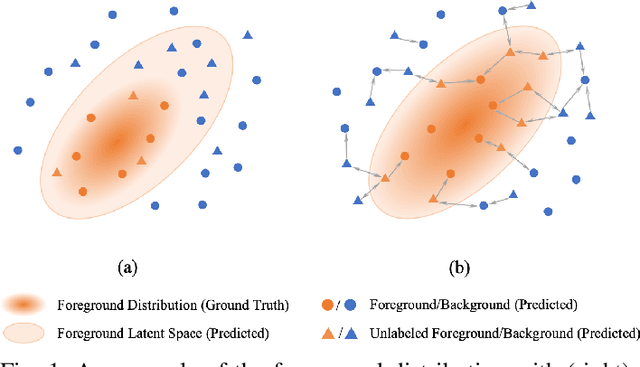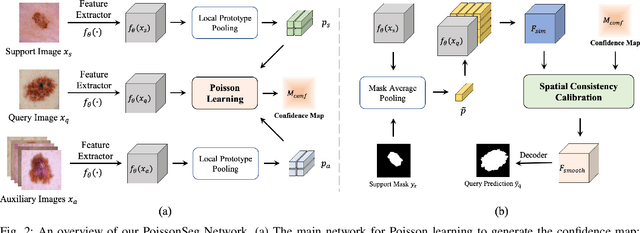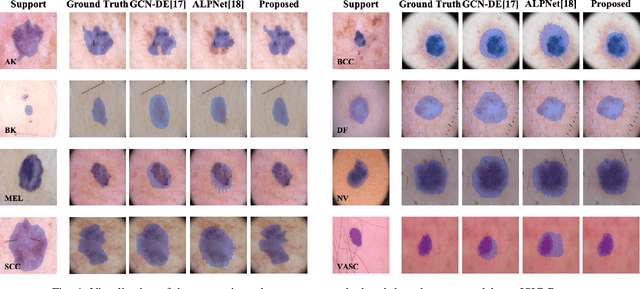Huilin Lai
PoissonSeg: Semi-Supervised Few-Shot Medical Image Segmentation via Poisson Learning
Aug 26, 2021



Abstract:The application of deep learning to medical image segmentation has been hampered due to the lack of abundant pixel-level annotated data. Few-shot Semantic Segmentation (FSS) is a promising strategy for breaking the deadlock. However, a high-performing FSS model still requires sufficient pixel-level annotated classes for training to avoid overfitting, which leads to its performance bottleneck in medical image segmentation due to the unmet need for annotations. Thus, semi-supervised FSS for medical images is accordingly proposed to utilize unlabeled data for further performance improvement. Nevertheless, existing semi-supervised FSS methods has two obvious defects: (1) neglecting the relationship between the labeled and unlabeled data; (2) using unlabeled data directly for end-to-end training leads to degenerated representation learning. To address these problems, we propose a novel semi-supervised FSS framework for medical image segmentation. The proposed framework employs Poisson learning for modeling data relationship and propagating supervision signals, and Spatial Consistency Calibration for encouraging the model to learn more coherent representations. In this process, unlabeled samples do not involve in end-to-end training, but provide supervisory information for query image segmentation through graph-based learning. We conduct extensive experiments on three medical image segmentation datasets (i.e. ISIC skin lesion segmentation, abdominal organs segmentation for MRI and abdominal organs segmentation for CT) to demonstrate the state-of-the-art performance and broad applicability of the proposed framework.
 Add to Chrome
Add to Chrome Add to Firefox
Add to Firefox Add to Edge
Add to Edge